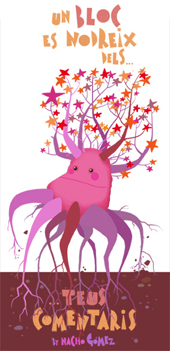The song continues with 'deux kilomètre' etc .
It's very easy to learn and is sung whilst marching around in a line. Rona suggested using it with instructions as to HOW the pupils should march and sing - marchez...lentement, sur place, accroupis, au galop, à quatre pattes, les mains en l'air, en faissent sauter une crêpe... et... changez de direction.
This reminded me of a session I attended at the Primary Language Show last year about linking ELL with Physical development in Foundation Stage - suggested activities included
jumping the rope where the leader holds up two coloured cards and calls a colour then the pupils jump to the correct side to indicate answer, and
walking the line where the class walk around a line on the floor whilst singing a song - the above would be a good choice!

Rona went on to present different ways of playing hopscotch from around the world. The names themselves were an education -
La Marelle (France)
El Muñeco (Spain)
Tempelhuepfen(German)
Hinkelbann (Netherlands - I think!)
Rayuela (Argentina). We were also treated to a discussion of another variation called Escargot or La Marelle ronde' where the squares are in a spiral and players hop on one foot to the centre and back.
Hopscotch has minimal language content so the suggestion was to perhaps put a picture in each square and to win it, you have to name the item, or put it into a sentence. Also players should count the squares as they hop, not necessarily starting at 1 but perhaps 8 or count in 2s etc., or even recite the alphabet.
Another activity which we tried was
La llamada de los animales - the call of the animals. Four children are given a picture of a Mummy animal eg frog, elephant, cat, dog, and they go to stand in a corner of the room. The rest of the class are given a card with one of the animals on it - they are the babies and they need to find their Mummy. As they approach one of the Mummies, they emit the sound of the animal and if it's their Mummy, they reply. To extend the (very minimal unless you're teaching animal calls!) languaeg, you could give the pupils lines to use such as 'I'm a little .... and I'm looking for my Mummy..' or 'Come and sit down' or @sorry, I'm not your Mummy'.
There were many more ideas for games such as
Lupo mangia fruta - the fruit eating wolf, and
Alto ahí, a Spanish variation on Dodgeball. Many can be found on
iEARN Children's Folk Games,
'a result of an international networking project run in I*earn Kidscan Conferenceduring September 1998- April 1999.' There are lots of games, rhymes, songs, tonguetwisters and customs in a wide variety of languages - well worth a look!
The next RSG is on 22nd January and I'm really looking forward to it as Oscar Stringer is coming to tell us all about animation - I'm already sold on the educational possibilites so I can't wait for others to discover its potential too.









































